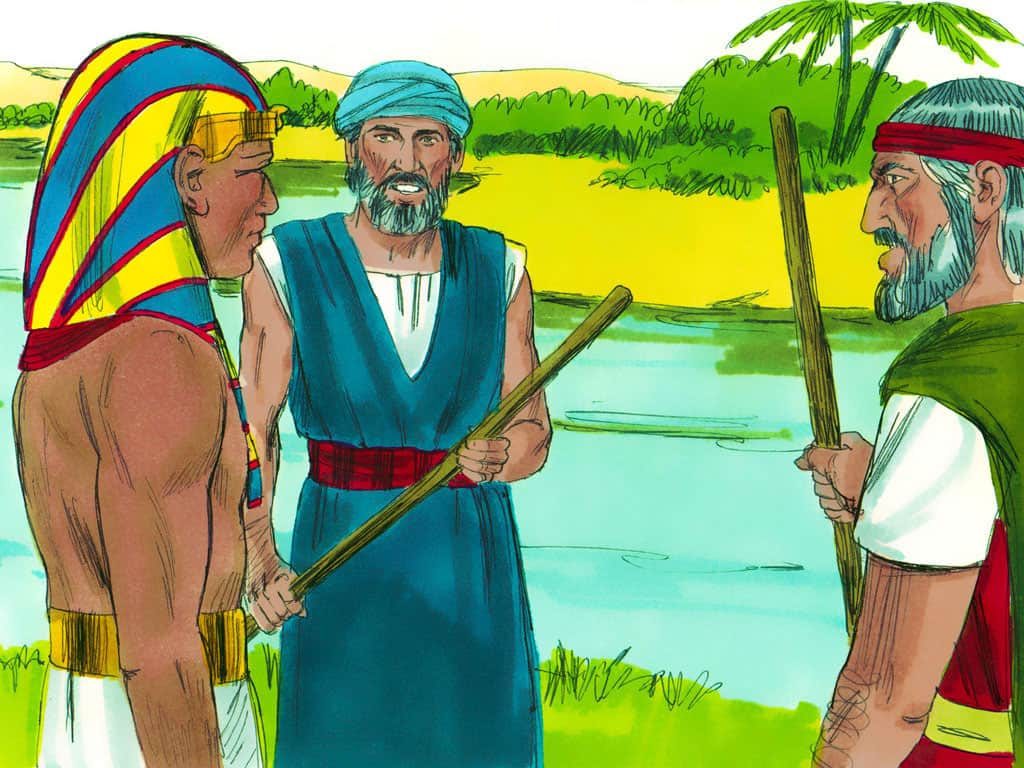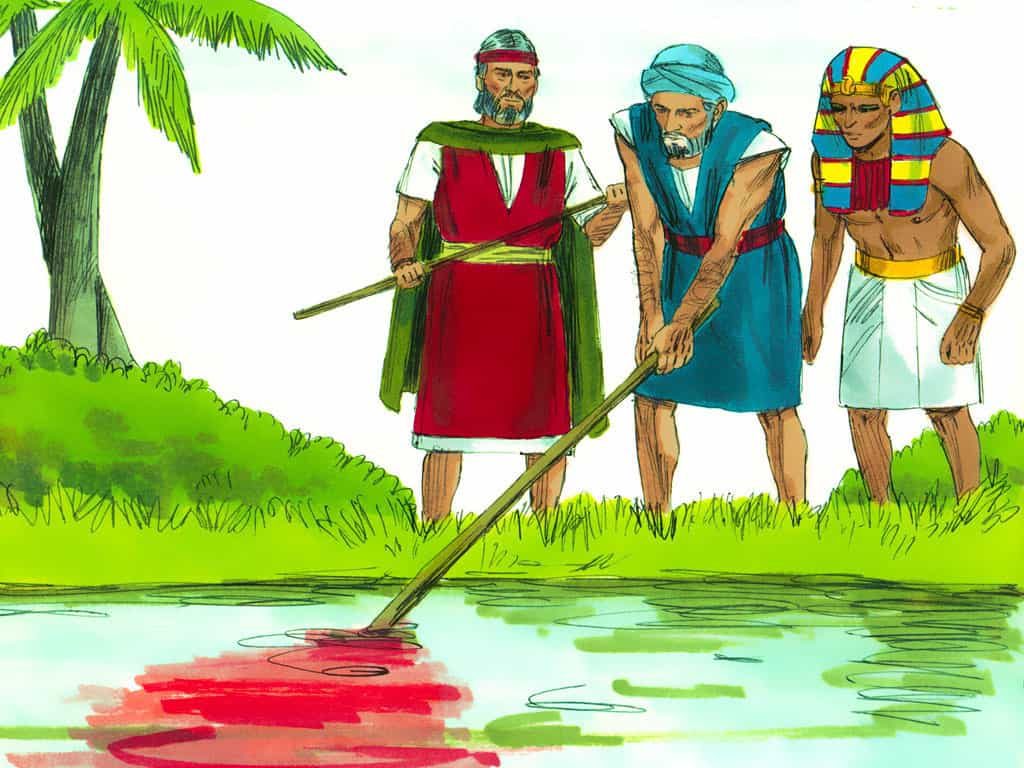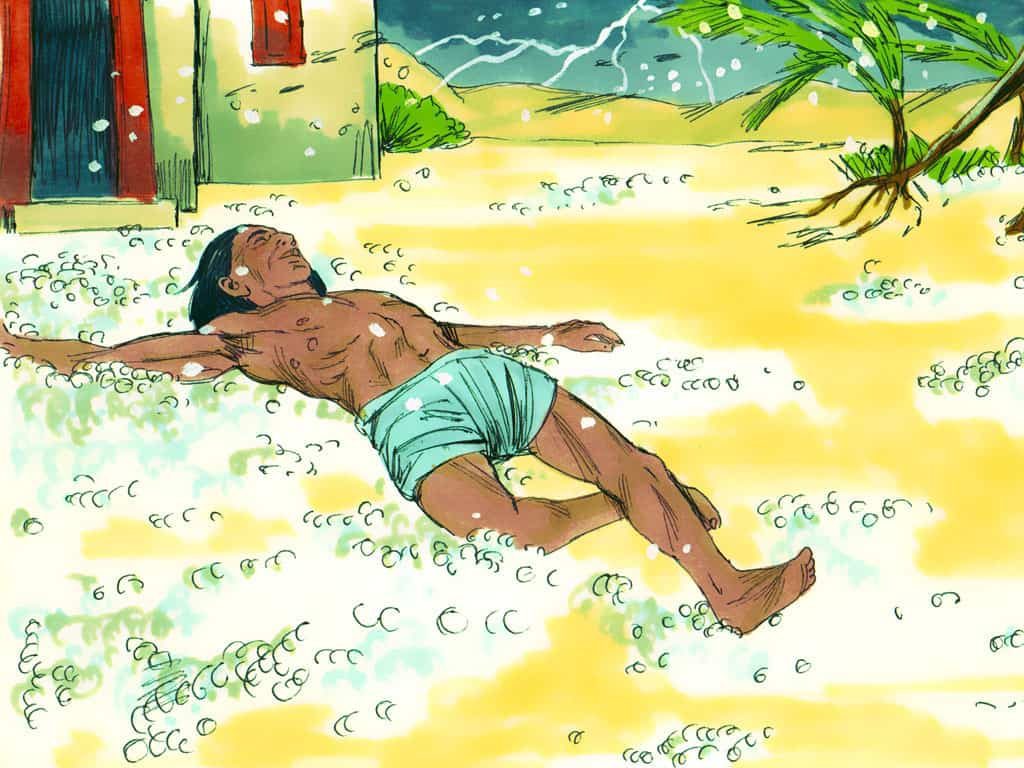
Dear Parents, Guardians, Teachers:
“What kind of heart do you want to have? ” In today’s story we are going to learn about someone who had a very hard heart, the Pharaoh.
Although he was given many signs to know God was in control, he did not fear Him. Instead, his heart was hardened and that led to disobedience. We have warning signs too. Not only are there signs that warn us about physical dangers, but the Bible is also full of warning signs. Therefore, what do we need to do to learn how to fear God and try to be obedient to Him in every area of our lives?
We need to turn to God and ask Him to give us a soft heart. He will show us how powerful He is and how much He loves us. Let’s keep walking with Him and grow in obedience and love. And God will do great work through us.
After completing this Sunday school lesson, the children will learn to look for God’s warnings about bad behavior and how we can benefit when we listen and obey God.
Scripture Reference: Exodus 4:27-10:29
Memory Verse:
“Blessed is the one who always trembles before God, but whoever hardens their heart falls into trouble.”
Proverbs 28:14 NIV
Bible Lesson:
For four hundred years God’s people had been slaves in Egypt. Being slaves meant that even though they had to work hard and do everything that the Egyptians said, the Egyptians never had to pay them any money.
Even though they had been born in Egypt, God’s people were not called Egyptians. They were called “Israelites”. The Israelites did not follow the gods of the Egyptians. They followed the one and only true God.
In Egypt (in those times) a king was called a Pharaoh. The Pharaoh was a harsh leader. He had a very hard heart and he was mean to the Israelites. Pharaoh did not believe in the God that we read about in our Bibles. Pharaoh and the rest of the Egyptian people believed in the many “gods” of Egypt. They made statues to these “gods”. Some were shaped like frogs while others were shaped like a crocodiles or even a geese. Pharaoh thought these “gods” could keep Egypt safe but he was wrong.
God had a plan for his people. He wanted them to live in their own country where they could worship him. He did not want them to be slaves! So God chose Moses to lead them out of Egypt. God told Moses that he had a message for Pharaoh. The message was “Pharaoh, let my people go!”
Moses did not feel like he would be a good leader so God told him that Aaron, his brother would be his helper. They would go to Pharaoh together.
What a shock Pharaoh must have had when Moses told him to let the Israelites leave Egypt and worship their own God. Pharaoh said, “No! the Israelites cannot leave Egypt!”. He was so angry about it that he made the Israelites work even harder. He told them they had to make bricks but he didn’t give them enough straw to make them with.
When this happened the Israelites began to wonder if leaving Egypt was a good idea after all. Maybe they should just stay and keep being slaves. So Moses prayed to God. Was God sure about this? God’s answer was YES! He told Moses not to worry. He would perform mighty “wonders” and soon everyone would know that He was more powerful than Pharaoh and any of Egypt’s “gods”.
So Moses and Aaron went back to Pharaoh again. Pharaoh wanted to see a miracle. Moses and Aaron knew exactly what to do next (because had already prepared them). Aaron threw down his staff (the long stick that he carried) and it turned into a snake. Everyone was amazed!
But then Pharaoh called his sorcerers and magicians in and they were able to do the same thing using their tricks and “secret arts”. The sorcerers and magicians thought they were really clever until Aaron’s snake swallowed their snake up. But, even though God’s power was evident, Pharaoh’s heart remained hard and he would not let the people go.
Plague 1- Water to Blood: The next time Moses came to the Pharaoh he repeated the same message, “Let My People Go!” He warned Pharaoh that if he didn’t agree then God’s power would make the Nile river turn to blood. In fact all water, even water that had already been poured into jars, would become blood.
Pharaoh refused so Aaron took his staff and stretched his hand over the Nile. All the water turned to blood. All around Egypt the people would not have had water to drink. The blood also made the fish die so the air smelled like dead fish.
Pharaoh’s magicians gave it a try and turned water to blood too. But that didn’t really help matters to have even more blood. But, even with all of the dead fish, bad smells and thirsty people, Pharaoh’s heart remained hard. He would not let the people go.
Plague 2- Frogs: Next, God sent a plague of frogs. Hundreds of frogs came out of the Nile River and hopped everywhere. The frogs got in peoples’ beds and in their ovens and on their tables.
Once again Pharaoh called his magicians and they produced even more frogs. Well, the problem was not solved. They did not need MORE frogs. They needed FEWER frogs. So Pharaoh asked Moses to make the plague stop. Even after Moses made the frogs go away Pharaoh still refused to let the Israelites leave Egypt.
Plague 3- Gnats: Next, God told Moses to tell Aaron to use his staff to strike the dust of the ground. When he did this the dust turned into gnats. Gnats got all over the people and the animals.
The magicians tried to do the same but they could not turn dust into gnats. When they saw how many gnats there were they said to Pharaoh, “Moses and Aaron are not doing tricks. This is really the power of God!” But Pharaoh would not even listen to his own magicians. He would not let the people go.
Plague 4-Flies: Once again Moses came to Pharaoh with God’s message and said, “Let My People Go!” When Pharaoh said, “no” hundreds of flies invaded Egypt.
Flies were almost everywhere in Egypt. The only place there were not flies was in Goshen. Before, when Pharaoh said “no” bad things happened to everyone. This time a bad thing happened to the Egyptians but nothing bad happened in the part of Egypt called “Goshen” where the Israelites lived.
Pharaoh finally said he would let the people go out into the desert and worship God so Moses prayed to God and the flies left. But guess what? Pharaoh changed his mind and said, “No, the people cannot leave”.
Plague 5-Death of Livestock: Moses visited Pharaoh again and warned him that he must let the Israelites go or the next plague would cause the Egyptians’ animals to die. So horses, donkeys, camel, cattle, sheep and goats belonging to the Egyptians died but not one animal belonging to the Israelites died. Still Pharaoh’s heart remained hard.
Plague 6-Boils: Next, God told Moses and Aaron to toss soot from a furnace into the air in front of Pharaoh. This would spread through Egypt causing the Egyptian people and their animals to break out in big sores called “boils”. People could not even stand up because of the sores on the soles of their feet. Still, Pharaoh did not relent.
Plague 7-Hail Storm: God had already sent six plagues but Pharaoh’s heart was still hard. He refused to change his mind. But God would never give up. He would make sure Pharaoh knew how powerful he was and how much he loved his people.
Moses and Aaron once again gave God’s message to Pharaoh. When Pharaoh said “no” this time God told Moses to stretch his hand toward the sky to bring on the worst hail storm that had ever hit the nation of Egypt. Some of the Egyptian people who overheard began believing what Moses was saying. A few of them brought their families, servants and animals into shelter.
But the others did not listen. Hail is like balls of ice that rain down hard from the sky. Many people and animals died when the hail hit them. And most of the food crops were destroyed by the hail. Only Goshen remained untouched.
When Pharaoh saw this he confessed he had sinned and that he had been wrong not to let the people go. But, guess what? Once again, as soon as Moses stopped the hail, Pharaoh changed his mind. He would not let the people go.
Plague 8-Locusts: Now Moses and Aaron warned Pharaoh that a swarm of locust insects (like flying grasshoppers) worse than anyone in Egypt had ever seen would eat anything that was left of the crops and trees in Egypt following the hailstorm.
Pharaoh’s officials begged him to let the Israelites go but Pharaoh refused. Pharaoh said, “Maybe I’ll just let the men go but keep all of the women and children in Egypt.” This would not do!
When Moses stretched out his hand God caused the East wind to bring in an invasion of locusts. They destroyed everything that was still growing.
Once again, Pharaoh said he was sorry but changed his mind as soon as Moses prayed and the locusts left. Pharaoh really did have a hard heart!
Plague 9-Darkness: Now God caused darkness to fall over all of Egypt. For 3 days there was no light in Egypt. It felt like night-time all of the time. There was only one part of Egypt that had light. Guess where that was? There was light in Goshen where the Israelites lived.
Pharaoh tried to trick Moses again and say that the Israelites could leave but had to leave their animals behind. But Moses knew how hard Pharaoh’s heart was. He told Pharaoh that God wanted all of his people (men, women, old people, children and babies) and even all of their animals to leave Egypt together.
Pharaoh became extremely angry and had Moses and Aaron thrown out of the palace. Pharaoh told Moses that he never wanted him to come to the palace again and ask that the people go. Well, Pharaoh would get his wish. Moses would never come and ask again. The next time Pharaoh will see Moses it will be Pharaoh begging Moses. The very last plague was just about to happen.
Plague 10-Death of the Firstborn: Every plague had caused pain and suffering but the tenth (and last) plague was the most devastating of all. The Egyptians would find out that, without God’s protection, even their own children would not be safe from death. Pharaoh had a hard heart toward God. He thought he was the most powerful but he was not. Pharaoh, the magicians and sorcerers and the Egyptian people thought that their gods would protect them but they did not. Through the 10 plagues God showed that he was the most powerful and only he could protect and save his people.
God loved his people then and God loves us now. What kind of heart do you want to have? A hard heart like Pharaoh or a soft heart that loves and obeys God?
Review Questions:
1. What did the Pharaoh do to the Israelite slaves when Moses and Aaron first asked him to let them leave Egypt? He told them to make more bricks but he took away the straw that they needed to make them.
2. What happened when Aaron’s staff turned into a snake? Pharaoh’s magicians made their staffs turn into snakes. Then Aaron’s snake ate theirs up.
3. What were the 10 plagues on Egypt? 1-Water to blood, 2-Frogs, 3-Gnats, 4-Flies, 5-Death of Animals, 6-Boils, 7-Hail, 8-Locusts, 9-Darkness, 10-Death of the firstborn.
4. What happened each time that Pharaoh said that the people could go? His heart hardened and he changed his mind.
Learning Activities After the Lesson
1. Have your kids watch the animated story of “The Ten Plagues” below:
2. Do this Activity after watching: HARDENED HEART
Being able to spin an egg that has been hard-boiled will show the kids how a hardened heart makes it difficult to resist the devil.
WHAT YOU WILL NEED:
1 Hard-boiled egg
1 Uncooked egg
Table or hard flat surface
PREPARATION:
Before class, hard-boil one egg and let cool. Mark one egg with an “A” and the other with a “B”, or whatever marks you choose, so you can tell them apart.
WHAT YOU WILL DO:
You will show the class that the hard-boiled egg is easy to spin around like a top, but the uncooked egg will not spin as often as you try. You will compare the hard-boiled egg to someone with a hardened heart. Just as we can spin the hard-boiled egg, the devil can make someone with a hardened heart do things they know is wrong.
WHAT YOU WILL SAY:
I have here two eggs. Except for the fact that one is marked “A” and this other one is marked “B”, they look the same. However, they are very different. Let me show you. I need one volunteer. (Give the volunteer the hard-boiled egg.) What I would like you to do is spin this egg around like a top. Can you do that? That was easy, was it not?
Now I need another volunteer to spin this other egg. (Give the second volunteer the uncooked egg.) What is wrong, are you having trouble spinning this egg? Some children may know already, in any case let the children experiment with the two eggs for a moment, and then ask to have them back. Explain that the difference between the two eggs is that one is hard inside, while the other is still liquid. We can spin the egg with the hard inside around.
The Bible says, “Blessed is the man who always fears the Lord, but he who hardens his heart falls into trouble” (Proverbs 28:14). This hard-boiled egg is like someone with a hardened heart and who does not fear the Lord. The devil can make this person do things they know are wrong. In a sense, the devil has some control over their life, and that is very scary is it not? Someone who is obedient to the Lord, and does not let his or her heart become hardened can resist the power of the devil. Like this egg with the soft center that we cannot spin around, a Christian who is obedient to the Word of God, and who fears the Lord cannot be controlled by the devil. We must make sure our hearts do not become hard, like a hard-boiled egg.
Sources: Kids Sunday School, Children’s Ministry Deals, Mission Bible Class, Share Faith Kids Film




0 Comments